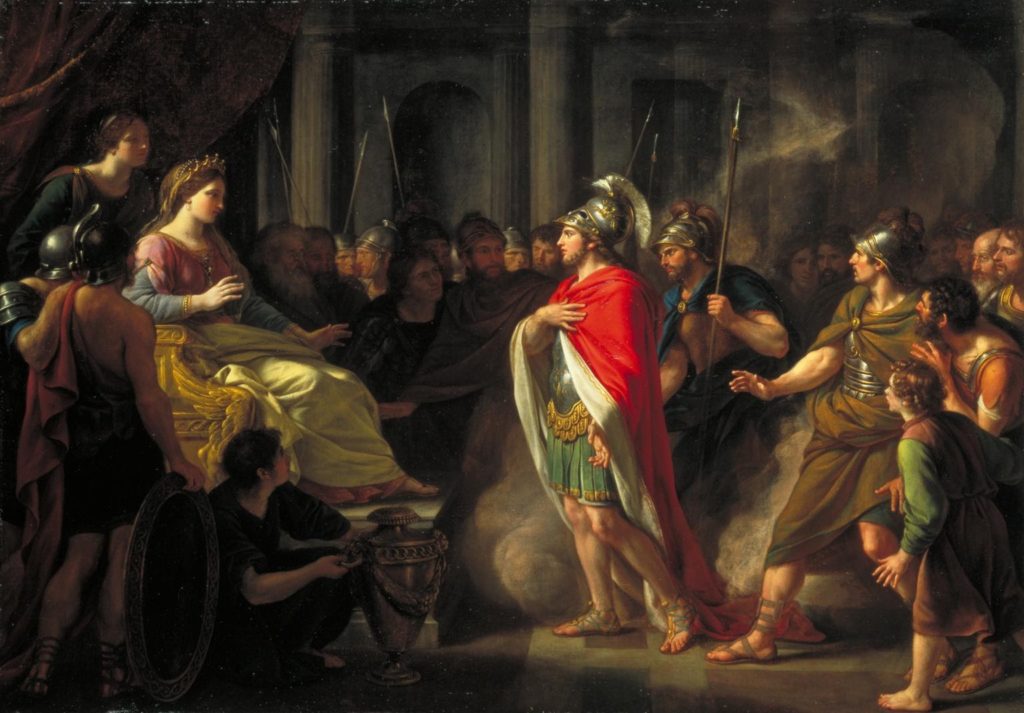It is the unfortunate reality of Italian politics that fascism is alive and well, seventy-five years after the ignoble death of its great European architect, Benito Mussolini. Indeed, though Il Duce’s body may have been hung in the middle of Piazzale Loreto for all to see and revile, Italian politics still bears the marks of its notorious former leader. The country’s political arena is messy. It is cutthroat and it is, above all else, driven by personalities: Men (far more often than women [1]), oozing with machismo, their superficial charm rivalled only by their odious moral compass and the corruption charges levied against them.

A quick glance at the state of the country’s string of prime minister-led governments speaks of nothing so much as instability. Twenty-one government cabinets in thirty years – four of them led by Silvio Berlusconi, a populist in all but name long before it was cool, to use modern parlance. Mired in scandal since before his first term of office, Berlusconi is a far cry from Mussolini – he has, until recently leaned towards the centre-right, a liberal conservative unafraid to embrace a variety of policies, including traditionally liberal ones, as well as populist and Catholic ones. But Berlusconi’s personal political legacy is a foul one, his politics and conduct both a precursor to those of recent populists, with Matteo Salvini at the forefront of their ranks. Salvini’s allegiance with fascist ideology has long been a divisive question in Italian society but the fact of the matter is, neo-fascist parties such as Fratelli d’Italia see the leader of the Northern League as their natural ally.
The Internal Logic of Fascism
The Italian statesman Massimo d’Azeglio said, a day after the unification of Italy in 1861, “We have made Italy and, now, we must make the Italians.” Whatever else is said about Mussolini, he well grasped, perhaps at an intuitive level, the importance of a unified nation.
Fascism, as described by novelist and frequent NYRB contributor Tim Parks, is “an ideology not only repressive but also inward-looking.” It recalls the exceptional, reinforces the notion of a god-chosen people. In the Italian example, it offers a unified vision of Italy through history; Mussolini appropriated classical Antiquity, mythologized and streamlined it, offering simple, reassuring answers to the complex questions of the time. The history of the Ancient Roman Empire, this notion of Romanitá, thus became a unifying staple of Fascist ideology. In Mussolini’s own words, “For the Italian people all is eternal and contemporary. For us it is as if Caesar was stabbed just yesterday. It is something proper to the Italian people, something which no other people have to the same extent.”
This ideology’s underlying logic seeks to produce unity, a homology which the deconstructionist philosopher Jacques Derrida warned against on the grounds that in creating a bounded unity, there must necessarily be a “constitutive outside,” an enemy to unify against, to drive out and abject. And indeed, both the early and the later years of the Fascist movement were defined by violence against those who would constitute the “other,” mainly Slavs – in particular Yugoslavs, Serbs and Slovenes.
To the fascist, this is a battle for nothing less than survival, for Antiquity offers a bitter lesson as to the failure in doing so: “It is not the change in political forms, from republican to monarchic, which indicates the beginning of Rome’s decadence, but the corruption of dominant races in too much and too frequent contact with inferior peoples”. Mussolini’s reasoning, unsurprisingly, has little to do with the realities of empire. It does, however, serve to reinforce the most overt messages of one of the most persistent works of classic literature in modern Italy, the Aeneid.
A Uniform Founding Myth?
At first glance, Virgil’s Aeneid presents a founding myth which perfectly embodies the notion of a “dominant race”. By the end of this great Roman epic, the shattered remnants and dredges of Troy are reforged into one people under the rule of Aeneas, a leader forged in the fires of war, a man who sacrifices his individual freedoms for the good of his people. Chased away from their sacked homeland, the progenitors of the Roman Republic become, as NYRB’s chief editor Daniel Mendelsohn notes, “a nation of victors rather than victims.” Divine providence – what better tenet to base national identity on?

Indeed, Virgil’s magnum opus presents questions no less relevant today than they were in Mussolini’s Italy, perhaps more. It is a text both informative and problematic. Individuality is suppressed for the sake of the common good and empire stands triumphant. The epic poem’s hero, Aeneas, is repeatedly caught red-handed, committing one morally outrageous act after another, all borne out of necessity, for the survival of his people.
But to reduce the great poet’s work to only these characteristics would be a disservice, though one a fascist would be happy to perpetrate. The Aeneid itself does not offer a singular, unified vision of the world – the voice of the African queen Dido is perhaps the strongest criticism to the notion of strength, unification and empire the fascist would place foremost in his reading of the work. Dido, who saves and aids Aeneas only to be betrayed by him at the behest of his gods, kills herself and thus becomes, to quote Mendelsohn, “a heartbreaking symbol of the collateral damage that ‘empire’ leaves in its wake.” Hers is not the only part to offer criticism to the notion and cost of empires; there is warning there, a cautious tale against the price paid by perpetrator and victim alike.
No homogeneous view of society thrives for long, and Il Duce’s vision of Romanitá has seen its decline in the seventy-five years since his fall from grace. But neo-fascism and far-right nationalism have gained enough ground in recent decades to echo the early rise of the fascist movement in troubling ways. One hopes that, for all Salvini’s accidental gaffes in apping Mussolini, the leader of the League Party will stay away from embracing the odious rewriting of history his political predecessor engaged in. Salvini’s track record, however, leaves much to be desired.
by Filip R. Zahariev
[1]Italy has long struggled with the vastest gender-gap in Western Europe.
Photo Credits
mussolini a colori,cripto, CC BY-NC-ND 2.0
The Meeting of Dido and Aeneas, Sir Nathaniel Dance-Holland, CC-BY-NC-ND (3.0 Unported)










